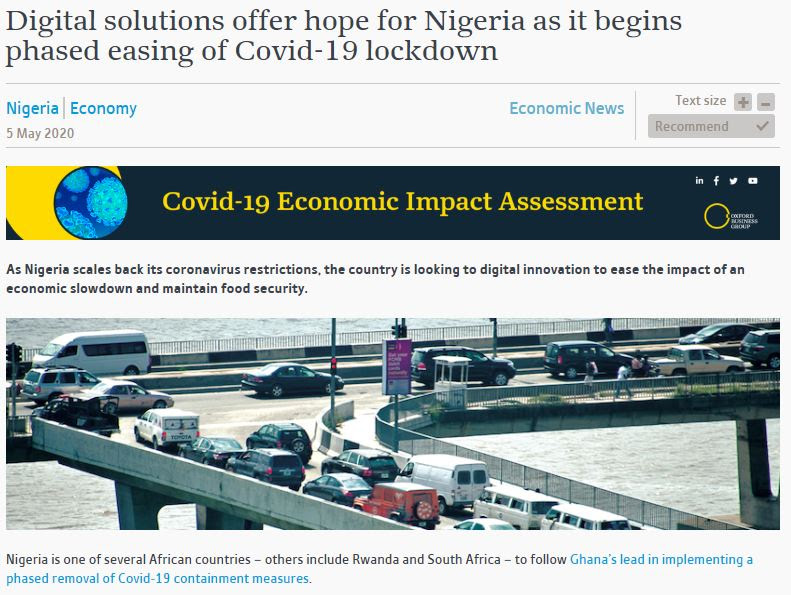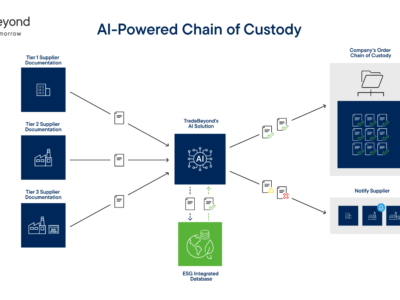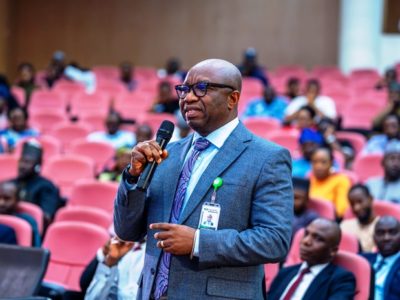As Nigeria scales back its coronavirus restrictions, the country is looking to digital innovation to ease the impact of an economic slowdown and maintain food security.
Nigeria is one of several African countries – others include Rwanda and South Africa – to follow Ghana’s lead in implementing a phased removal of Covid-19 containment measures (http://oxfordbusinessgroup.com/news/ghana-lifts-covid-19-lockdown-amid-health-care-expansion- plans).
The six-week easing process began on Monday, and its progress will be reviewed in two weeks.
Shops and markets may now stay open until mid-afternoon. However, schools and religious sites have not yet reopened, and a ban on public gatherings remains in place alongside a nationwide curfew.
Some concerns have been expressed about the timing of this move, with Nigeria having registered a spike in Covid-19 cases in the past week.
“The 2020 budget has been considerably scaled back, and for the time being it seems that innovation and digitisation offer the best approach to guaranteeing that Nigeria’s population has access to essential supplies.”
While acknowledging this, President Muhammadu Buhari has underlined the “very heavy economic cost” of the lockdown, which is expected to disproportionately affect the country’s poorer citizens.
As of May 4, the country had recorded 2558 infections and 87 fatalities, with Lagos accounting for nearly 50% of all cases.
Economic fallout
The fallout from the virus leaves Africa’s largest economy facing serious headwinds.
The IMF has said it expects Nigeria’s economy to shrink by 3.4% this year, in contrast to the 2.2% growth it saw in 2019. However, it is expected to rebound with 2.4% growth in 2021.
The plunge in global oil prices that has accompanied the outbreak has affected the country, with crude exports being its largest source of revenue.
Nigeria’s unemployment rate of 23% is expected to rise further in the face of these developments, which will also impact heavily on the 80% of the population who work in the informal sector. This group tends to be dependent on face-to-face contact, and hence was particularly vulnerable during the lockdown.
The government will need to take steps to ensure that the informal economy’s workers are supported during the anticipated slowdown, with food security looming as a particularly crucial issue.
Digital solutions to logistical challenges
The majority of African states closed their borders in response to Covid-19, restricting the movement of workers and creating severe delays in the cross-border transportation of freight: it has been estimated that the volume of goods moving across the region has dropped by a third.
As a result of supply chain disruptions, the price of a bag of imported rice – a principal staple – rose by more than 7.5% in Abuja and Lagos between mid-March and early April, while the cost of domestically produced rice increased by around the same amount.
In combination with movement restrictions, such disruptions are also denting domestic agricultural capacity, with some farmers unable to sell their crops or obtain supplies.
The crisis has highlighted the importance of having stable intra-continental imports and exports, and action is being taken across Africa in response. For example, the East African Community recently issued new guidelines aimed at simplifying the movement of goods between its member states.
Digital solutions are also increasingly being applied, both to combat Covid-19 and to streamline logistics in general.
Nigeria was already leading the way in the digitalisation of logistics processes. For example, start-up Kobo360 (http://oxfordbusinessgroup.com/news/how-digitalisation-shaking-logistics-and-freight- services-nigeria) has helped to drive digitalisation and improve efficiency in the transport and logistics sector since it was founded in 2017.
Kobo360 uses an Uber-like app to connect cargo and truck owners with drivers and customers. In addition, it gives drivers real-time information about weather and traffic, while also helping them choose safe routes.
Under normal circumstances, the company says that its blockchain-enabled platform can reduce the time it takes to drive from Lagos to Kano, a distance of 1000 km, from one week to three days.
Infrastructure upgrades
Parallel to digital innovation, upgrading transport infrastructure has been a key priority for Nigeria in recent times.
Prior to the pandemic, the Lagos Chamber of Commerce and Industry estimated that the country lost $19bn a year due to infrastructure problems. In light of this, the government allocated some N258.4bn ($663.4m) to the rehabilitation of roads throughout the country in the 2019 budget.
However, the 2020 budget has been considerably scaled back, and for the time being it seems that innovation and digitisation offer the best approach to guaranteeing that Nigeria’s population has access to essential supplies.
As Iyinoluwa Aboyeji, co-founder and general partner of digital platform Future Africa (http://oxfordbusinessgroup.com/views/iyinoluwa-aboyeji-co-founder-and-general-partner-future-africa), recently told OBG: “It is at times like these that new forms of innovation really become critical. Now is the time to identify what people are doing that is working and make sure to expand those innovations to as wide an audience as possible.”
Courtesy: Oxford Business Group.com (@oxfordbusinessgroup.com via prnewswire.com)































